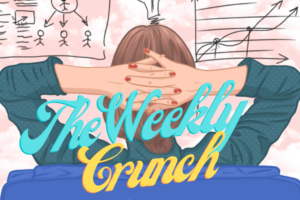What Is Konenki?
Whether it’s because of culture or a lack of awareness, there’s still a dark shadow surrounding menopause on the Western side of the world. But did you know there are better ways to interpret and experience this stage of life?
In Japan, for instance, menopause is called Konenki and it’s considered a time of renewal and regeneration, a time for women to “rebirth” through a process of heightened awareness that brings a sense of new purpose and growth. When compared to the negative connotations about menopause that abound in Western society, Konenki is a refreshing take on ageing. Menopause for women everywhere presents challenges, still, the power of Konenki reminds us that life is not over just because we’re not fertile anymore.
Of course, Japanese women’s bodies experience the same physical transitions during menopause as women around the world, but their approach is interpreted as more gentle easing into advanced age. They understand that their new life phase means breaking free of the ‘mother-wife’ role responsibility and embracing new possibilities.
Basically, while in the West menopause and ageing are still taboo or something to be ashamed of, in Asian cultures, women look forward to it, because it signals a rise in status and respect within their community and that can ease symptoms or at least a less dramatic approach to it.
If you wonder why is it that women in Eastern cultures don’t seem to suffer in the same way that women in the West do, Margaret Lock, a distinguished Canadian medical anthropologist, and author of “Encounters with Aging: Mythologies of Menopause in Japan and North America“, seems to have found the right answer.
She argues that “some needs of the women who come to menopause have been constructed as dominant narratives so that there is more room for the promotion of various consumer products to their face. How much of how we experience during menopause depends on the place, the culture, the myths, the hierarchical relationships within which the experience takes place“.
These assumptions open up some questions. To what extent is menopause “IS” and to what extent “DO WE THINK IT IS”? If wisdom and life experience were celebrated more in society, rather than just the glorification of youth, would the experience be different?
We’d love to hear your thoughts.
Like this post? Support Us or Sign up to our newsletter to get more articles like this delivered straight to your inbox!





